The Doctor Who and Blake’s 7 writer Chris Boucher has passed away at the age of 79.
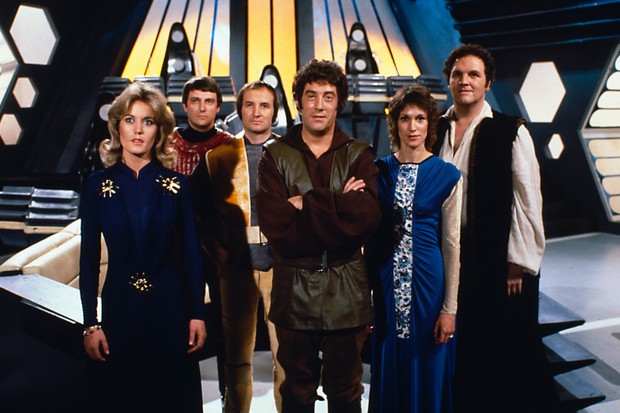
(C) BBC
This is a sad day for science fiction fans. To many, the writer Chris Boucher was best known for his work on the cult BBC series Blake’s 7, which ran from 1978 to 1981. Chris Boucher served as one of the lead writers and script editor of this series, which had strong links to Doctor Who. Indeed, it was created by Terry Nation no less (who had also created the Daleks) and Boucher was recommended for the Blake’s 7 job by Doctor Who‘s then script editor Robert Holmes.
And history would have been very different if Chris Boucher had never worked on Blake’s 7. The episodes he wrote are among the fans’ favourites; he had a flair for tight dialogue which he doled out with relish. For instance, in Blake’s 7‘s Season Two finale ‘Star One,’ the character of Avon guns down a sinister alien creature which – upon dying – exudes green smoke as its skin drips with slime. The character of Lurena exclaims, “What is that thing?” to which Avon replies, “Unfriendly – which is fortunate really. They’d be difficult to love.”
Punchy dialogue notwithstanding, Chris Boucher also brought tremendous gravitas to his writing. In the same episode, Avon rounds on the character of Blake (the show’s hero) and declares: “I never doubted your fanaticism. As far as I am concerned you can destroy whatever you like. You can stir up a thousand revolutions. You can wade in blood up to your armpits. Oh, and you can lead the rabble to victory, whatever that might mean. Just so long as there is an end to it. When Star One is gone, it is finished, Blake. And I want it finished. I want it over and done with. I want to be free.”
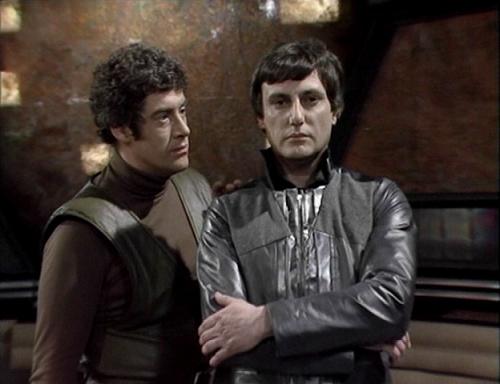
(C) BBC
Of course, strong dialogue is nothing without a good story to hang it on, and this was an area that Chris Boucher was similarly gifted in. His plot for the Season Three episode ‘City at the Edge of the World,’ for example, concerns a locked door on a forgotten planet which is a gateway to a mystical world on the other side of the universe. And is also stars the Sixth Doctor himself Colin Baker as the wonderfully wicked Bayban the Butcher.
Then there is ‘Rumours of Death’ which explores Avon’s desperate search for the man who murdered his lover. Avon finds them, of course – but it turns out that his lover never died at all, and betrayed him. Naturally, Avon shoots her before she can she shoot him and, as he cradles her dying body, utters the line, “Of all the things I have known myself to be, I never recognised the fool…”
However, one of the most memorable and controversial scripts Chris Boucher ever wrote was the Blake’s 7 Season Four finale. Simply titled ‘Blake,’ the episode brought back the programme’s eponymous hero (who had been missing for two seasons) and reunited him with the remnants of the original seven. And in the episode’s final moments, Avon guns Blake down, convinced that his old friend has betrayed him, and moments later the base is raided by guards who proceed to shoot all the remaining cast members.
Avon alone survives, and raises his gun in defiance – smiling at the irony of the situation. And the episode ends.
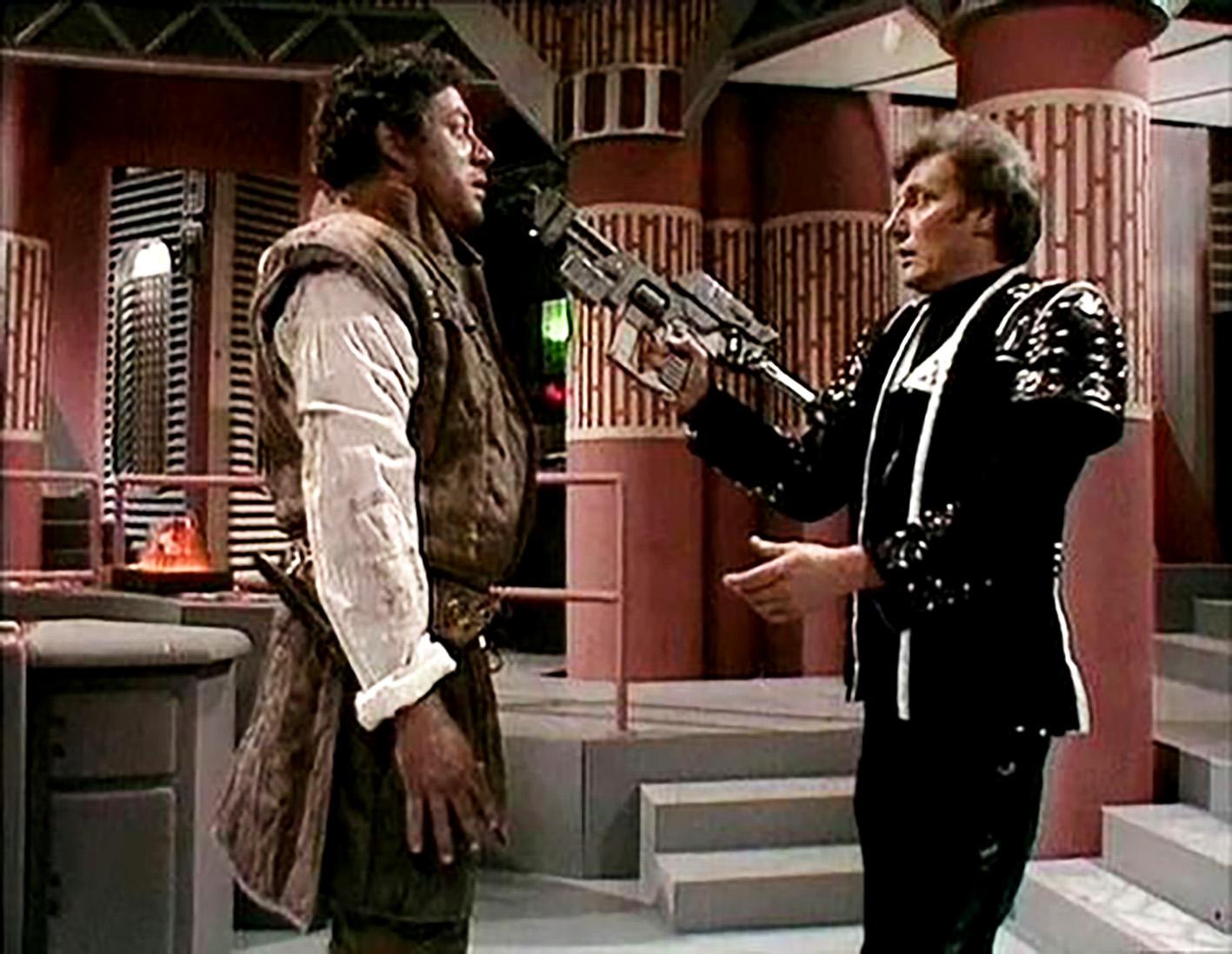
(C) BBC
‘Blake’ was broadcast in the days before Christmas 1981, and in the years that followed Chris Boucher referred to himself as the man who killed Santa Claus. Love it or hate it, the ending of Blake’s 7 was bold and memorable and underlined the series’ guile, of which Chris Boucher was a key part.
And whilst his episodes of Doctor Who weren’t quite as jaw-dropping (in that he never killed off the Doctor!) they were equally enjoyable.
His first was ‘The Face of Evil’ which came during the Philip Hinchcliffe era – arguably one of the most popular periods the programme has ever seen. This was written immediately before his work on Blake’s 7, and may explain why he didn’t contribute many other stories after this. It is notable for introducing the Doctor’s ‘savage’ companion Leela, and it features one of the few instances in the show’s history where the Doctor actually broke the fourth wall and talked directly to the camera – although this may have been more Tom Baker’s influence than Boucher’s.
Interestingly (and rarely in Doctor Who) Chris Boucher was also the writer for ‘The Face of Evil’s follow-on story ‘The Robots of Death,’ which has gone down in history as one of the all-time Fourth Doctor greats. This adventure has echoes of an Agatha Christie-style murder mystery, with the isolated workers of an outer space mining machine being picked off one by one by a mysterious killer.
And whilst it probably isn’t a spoiler to say that the killer is a robot (it’s kind of in the title!) Chris Boucher managed to weave a yarn that was as suspenseful as it was gripping, with the viewer left wondering (almost) to the end who the mastermind behind the robot revolution was.
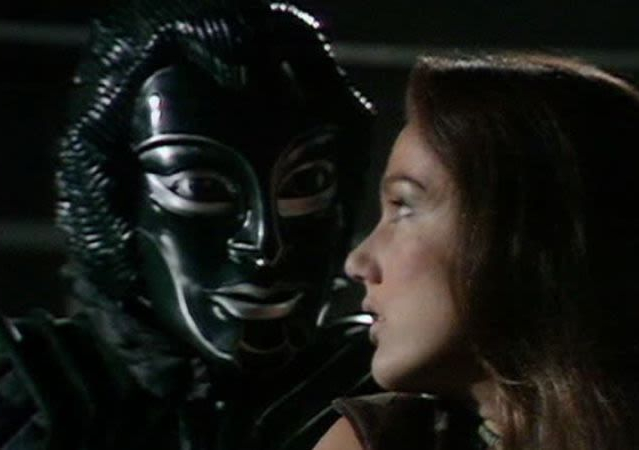
(C) BBC
Indeed, ‘The Robots of Death’ was so impactful that it spawned a spin-off audio series in the early 2000s titled Kaldor City, which explored the background of the robot society featured in the Fourth Doctor story. Chris Boucher himself contributed to the writing of the series.
His final Doctor Who adventure, however, was the 1977 story ‘Image of the Fendahl’ which is something of a gothic horror outing for the Doctor and Leela. It all takes place in the darkness of the English countryside in an old priory, where a deranged cultist is experimenting on fossilised skull (a remnant of a god-like being known as the Fendahl) in order to harness its power and wreak havoc on the cosmos.
Arguably, this is one of Chris Boucher’s more complex scripts and certainly lends itself to repeat viewing, in a similar vein to other Classic stories such as ‘Warriors’ Gate’ and ‘Ghost Light.’ But it is particularly notable for starring Wanda Ventham of The Avengers fame – and mother of Benedict Cumberbatch, no less!
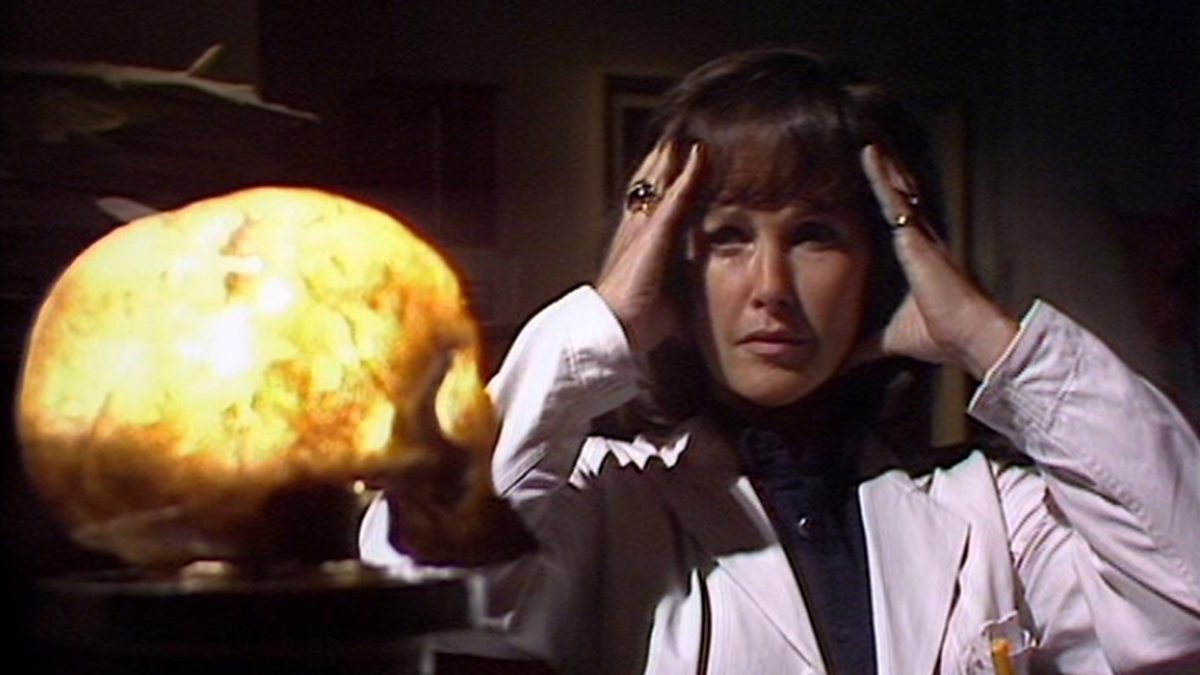
(C) BBC
Undoubtedly, Chris Boucher has achieved a degree of immortality with his writing. Even this year, some of the characters that he created (Dorian from the Blake’s 7 episode ‘Rescue,’ Bayban from ‘City at the Edge of the World’ and Arlen from ‘Blake’) have been brought back in various Big Finish box sets. Boucher’s scripts hung on branches of sharp, quotable dialogue that people still reference to this day – just try searching for Blake’s 7 podcasts and you’ll see what we mean.
Sadly, the rumours of his death have not been exaggerated, and dying is the one talent we all share. Thank you, Chris Boucher, for leaving us with such a rich body of work that continues to entertain and inspire. We have always trusted you – from the very beginning.
What is your favourite memory of Chris Boucher’s writing? Let us know in the comments below.



Leave a Reply